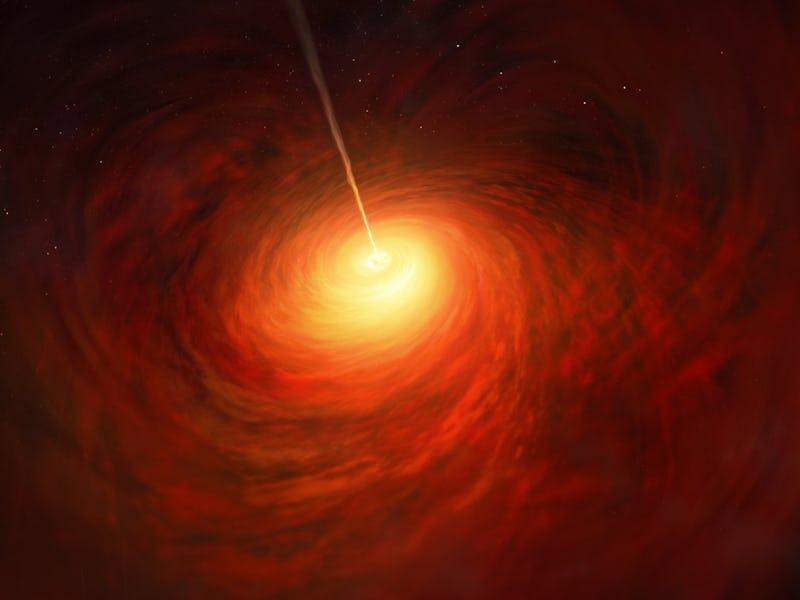Video: 3D imaging reveals a supermassive black hole’s secrets
Patterns are everywhere in nature.

Patterns in nature often occur in more than one place. Spirals, symmetry, and chaos all impact natural phenomena, from the shape of a shell to the course of a river.
So it shouldn’t come as a surprise that one of the most famous and fundamental shapes from biology also appears in astrophysics. Yes, scientists have found a double-helix structure in the magnetic field of M87. And it looks just like a super enlarged DNA strand.
Though M87 is one of the most observed galaxies in the universe, our ability to observe is getting better all the time. Most famous for its place on the Messier catalog, it is even more spectacular in wavelengths other than visual.
At 55 million light-years away, it is relatively close cosmically speaking and hosts a supermassive black hole at its center that is 6.5 billion times more massive than the Sun.
That black hole was the first to be directly imaged in a momentous discovery announced a few years ago by the Event Horizon Telescope collaboration. While that image focused on the black hole directly, the new research concentrated on the jet coming out of the black hole itself.
Alice Pasetto of the Autonomous University of Mexico and her team focused on the jet. They leveraged one of the most powerful radio telescopes globally — the Very Large Array (VLA) — to do so. They took images of the galaxy at several different frequencies, which allowed them to compile a 3D picture of the jet’s magnetic field coming out of the galaxy’s black hole.
The double helix they found wasn’t surprising — “Helical magnetic fields are expected close to the black hole,” says Jose. M Marti of the University of Valencia, one of the study’s co-authors. What was surprising was how far out the helix actually went.
Magnetic fields decrease with the square of the distance, so as the jet traveled further away from the black hole, it should appear to break apart. That was not the case in the observed data, though, so the researchers came up with a novel explanation for why the magnetic field was so strong so far away.
A zoom into M87’s monster black hole, thanks to Hubble.
Their answer leaned on another recurring natural pattern – chaos. Instabilities in the material flowing out as part of the jet could actually play a role in “ordering” the magnetic field, keeping its integrity as it gets farther away from its source. These instabilities cause high pressure in some regions of the jet, which could, in turn, result in strong magnetic fields emanating from the jet itself.
Whatever the cause may be, the study shows what is likely a common structure for the magnetic fields of these types of jets throughout the universe. But that remains to be seen — until astronomers can turn the VLA or a similarly powerful telescope onto another galaxy’s supermassive black hole, we won’t be able to see how prevalent this very famous natural structure really is in astronomy.
This article was originally published on Universe Today by Andy Tomaswick. Read the original article here.
This article was originally published on